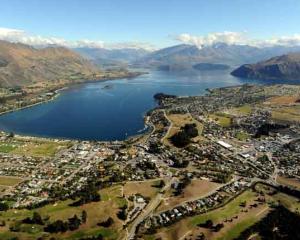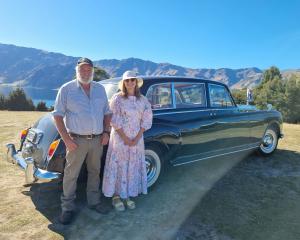
While climbing in spring risks avalanches, climate change is - more frequently than in the past - presenting another obstacle for climbers who wait for summer.
Owner of Wanaka guiding company Adventure Consultants Guy Cotter said yesterday this is the time of the year when climbing begins to "ramp up".
"This whole November, early December period is a very popular time for climbing the big mountains here."
And one of the reasons, he said, is access.
"With the snow left over from winter we have very good access around the glaciers and up the mountains."
But, he said, "glacial recession" meant some areas are not accessible from about New Year, because of crevasses opening up in glaciers "a lot more quickly than what they used to".
"The crevasses open up because the snow melts that's covering them ... and filling them up.
"That all ablates over the summer and we're down to the raw skeleton of the glacier with all of its crevasses.
"So it really does make a very big difference in what you can access."
Mr Cotter said Mt Hicks was one of those mountains where there was now an issue with access in summer and it was "very rarely climbed" for that reason.
He said the loss of snow was happening earlier than it did 30 years ago when he started climbing.
"We could access most places all through the summer.
"Now it's a lot more difficult to get to some of the mountains and get off.
"For example, climbs like Aoraki-Mount Cook, we can't even go past New Year most of the time."
Mr Cotter said regular snow falls protected the surface of the glacier by reflecting the sun.
"But if we've got long, fine periods and lots of rain then that does deteriorate the snow very quickly, and we are not able to climb Aoraki-Mt Cook until the following October or November.
"It's definitely part of climate change and the glaciers are definitely disappearing.
"Anyone who's denying global warming is not a mountaineer because we can see it first hand."
Mr Cotter said he knew the Mt Hicks area well and had climbed the mountain several times, but was not aware yesterday morning of where the avalanche occurred.
"The south face of Mt Hicks is well known for technical climbing, so it's got some good solid routes on it that are at the high end of the technical spectrum.
"It's definitely one of our steeper mountains."












